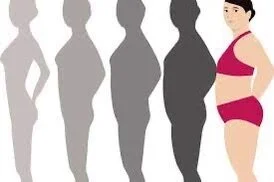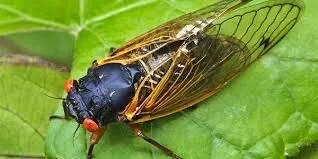I’ve gained weight this year, along with a lot of other people, I understand. In spite of everything I do. I eat well, I don’t eat between meals, I exercise, don’t drink much. This seems to be the general course of age. Not necessarily fat, but heavier, and collapsed around the middle. When I was seventeen I didn’t appreciate belts that fastened with ease. Gravity was just getting started. My muscles and skin were a match for it, then.
I don’t like what I see in the mirror when I have nothing on. I think about that reaction (you know me, I overthink everything). My body is being normal. This is what bodies do. Do I want to be 35 again? No way. I’m darn glad I still have a body, after all it’s been through. As Jane Kenyon famously said in a poem, “It could have been otherwise.”
I’m thinking about beauty. Here I go down a rathole. It is disingenuous to insist that all bodies are beautiful in their way. All life is beautiful in that it’s alive, and that’s good. And it is true that cultures value different characteristics. But, just to say, it is also true that there’s such a thing as a beautiful poem or story or sunset, or a not-so-beautiful poem or story or sunset. We make these judgments based on past models of beauty, based on our own experiences—all sorts of things. You should read Frida Kahlo’s passionate description of her husband Diego Riviera’s bullfrog-like body. But for whatever reason, unless we refuse to admit it, we do look in the mirror and like or dislike what we see. We get good haircuts. We spend money on face creams. We pick clothes that enhance our bodies. I love making things beautiful. I’ve been working for two years on several projects here at the Commons to make things more beautiful. Gardens. Fountain. Jerry and I have worked for years on the two cottages, making them the best and most attractive they can be.
Trying to define beauty ends up with the definer falling down a political rathole. You get into the whole history of racism, sexism, culturism. I’m not going there.
Art is concerned with beauty. I say concerned, as if Art has to regulate what beauty means. My daughter screams at cicadas. Yet in the light their wings glisten with colors. And when one sheds its shell, you can hang it on your clothes the way used to do, like jewelry. And the scarab beetle? It lays its eggs inside a ball of dung, yet the Egyptians made it a symbol of the sun god. Totally oxymoronic. Maybe.
I used to be such a tight-ass about poems. First of all, I didn’t like “spoken word” poems. Most of the ones I heard early on were sloppy with language. Since then I’ve heard some spoken word poems I’ve admired. They’re a whole other thing.
When I was in college, starting to look seriously at poems, virtually all the models were by men. I evaluated my poems and others’ by how closely the poems resembled the poems by men I admired. That’s one issue. When I first read Anne Sexton and Sylvia Plath, I almost fell off my chair with relief. Real poems by real women! (But that didn’t turn me off the men poets.)
So my ideas keep shifting. Think about music. At least one of Beethoven’s pieces was booed by the audience. As well as pieces by Cellini, Prokofiev, Bartok, and Tchaikovsky.
I don’t like a lot of poems I read these days. The ones I don’t like appear to me to be shallow, trying for effect, adolescent (maybe written by adolescents), or lazy, or all of those. There are so many poems I do love. If I have to give a reason that covers all the territory, I’d say they’re authentic, rich, and skillful with language. The poet knows a lot of words and knows how to use them. Other than that, I’ve loosened the reins on what I admire. I admire poems I don’t like.
That’s where I might come back to the body. Mine, to be exact. I admire my body. It’s lived a lot of years. It doesn’t look the way I would ideally like it to look, but at my age, most of the people I love don’t look like Greek statues, and I don’t think about it for a second. I think about my own life as a poem I’d like to get right, both emotionally and physically.
By “right,” I really don’t know what I mean. If you’re writing a poem, you don’t know what “right” is. But when it’s done, if it’s a good one, you look at it and you say, “Yes, there’s a rightness to it. It’s meaningful in a way I didn’t know was coming, but here it is.”
P.S. Do you live in Traverse City and want to come to a live reading, with actual people? June 26 Horizon Books. A Reading w/ Jen Sperry Steinorth, Anne-Marie Oomen, Moheb, and yours trutly, 4:30-6:00.
Or Tomorrow! Want to do something different while you’re eating your lunch? Thursday, June 10, I’m giving a talk/reading at the Wilmington, Delaware, Rotary at noon. The Zoom link is https://us02web.zoom.us/j/7972453263, and all are welcome to attend.




